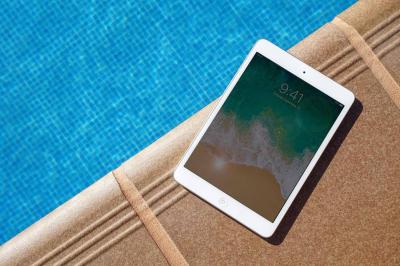
Hopefully, holidays are back on the agenda this summer. And do we need them. But whether you're planning a staycation, or have decided to venture abroad, you'll also need Wi-Fi, so you can get local information, stay in touch with the rest of the world, and keep yourself entertained as you travel.
Fortunately, you've got a number of options, and they won't cost you a fortune to use them. Let's take a look at the cheapest ways to get Wi-Fi when you're holiday at home or abroad.
Hotel Wi-Fi
The best way to get Wi-Fi when you're abroad is likely to be through your hotel. Most have it these days, and many hotels and hotel chains offer it for free, sometimes with the option to upgrade to a faster service.
But you may need to take a precaution.
The rule when it comes to any public Wi-Fi service is that a password protected connection is better than something that's fully open, but that's still no guarantee that it's completely secure. This applies equally to your Airbnb rental or airport Wi-Fi as it does to hotels.
You don't need to worry about this if you're only doing some casual browsing. But if you're planning to log in to sensitive sites like your bank account, then you should set up and install a VPN first. This ensures your connection and data are fully encrypted. Alternatively, you could just use your phone and its data connection for these tasks, so that you bypass the Wi-Fi altogether.
Hotel Wi-Fi can vary quite a lot in terms of performance. Some may or may not be very good, and you might find that some bandwidth-heavy services like Netflix are blocked. If you have the chance to upgrade to a faster service then that would be the best way to use these types of sites, but keep in mind that you'll likely be paying for 24 hours of access, so the fees could rack up over the course of your stay.
Mobile broadband
Another good option for getting Wi-Fi at home or abroad is through a mobile broadband service from providers like Virgin Mobile, EE, O2, Vodafone and Three.
These use the 4G or 5G phone network to give you internet access through a personal mobile router to which you can connect all your devices. You can also use it with a dongle connected to your laptop, or on a SIM-enabled iPad, although both of these options make it a little harder to share your connection with your other gadgets.
Mobile providers haven't reintroduced roaming charges post-Brexit, so you can use your mobile broadband allowance in many other countries. You should check where before your sign up - coverage is mostly for EU countries, so if you're heading further afield the price may be prohibitively expensive.
Even within the EU you might have fair usage limitations placed on some packages. And, of course, you'll be reliant on mobile coverage wherever you are. Head off for a city break and you'll be fine; go camping in the countryside and you might want to check the coverage maps for the area first.
Staying in the UK? You can use our Signalchecker service to check mobile phone coverage throughout the country.
Your phone's plan
Don't forget also that iPhones and Android phones can be set up as wireless hotspots, enabling you to get your laptop or tablet online wherever you are.
You'll find the option in Settings > Personal Hotspot on most iPhones, and on most Android phones you'll find it by swiping down twice from the top of the screen to open the Quick Settings panel, then tapping the Hotspot or Mobile Hotspot option.
Using your phone as a hotspot works in the same way as a separate mobile broadband plan, and can be a good option if you've got a decent data allowance. You'll get the same coverage without roaming charges across the EU, but will have to pay a lot more elsewhere. In either case, keep an eye on your data use. You'll have to buy top-ups in advance if you overshoot what your plan allows.
There may be other restrictions, too. If you've got an unlimited plan, check that it allows for tethering (connecting devices via the hotspot feature), and note that there may be a fair use policy in place.
Any one of these methods, or a combination, could be right for you. If you decide that you want the security and flexibility of a personal Wi-Fi system, check out the best mobile broadband deals available right now.
Posted by Andy Betts on in FeaturesO2VodafoneVirgin MobileEE MobileThree
